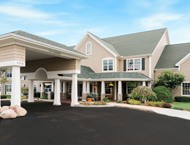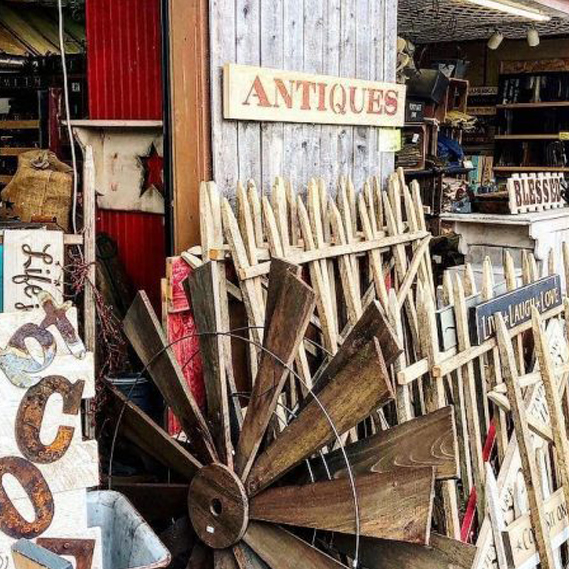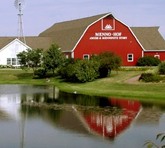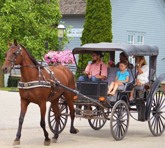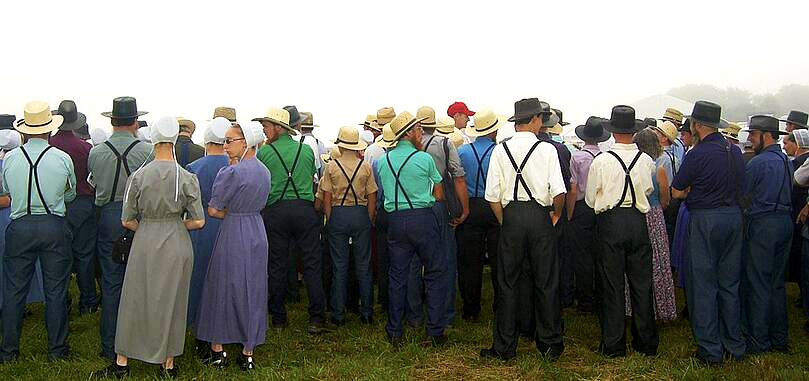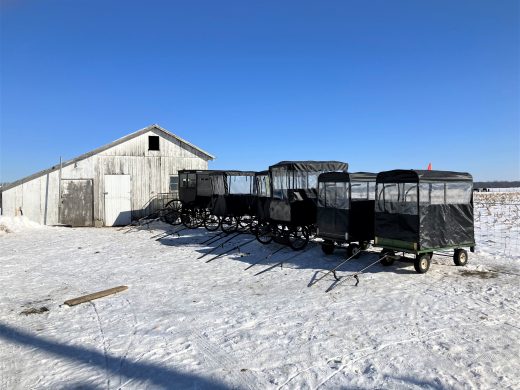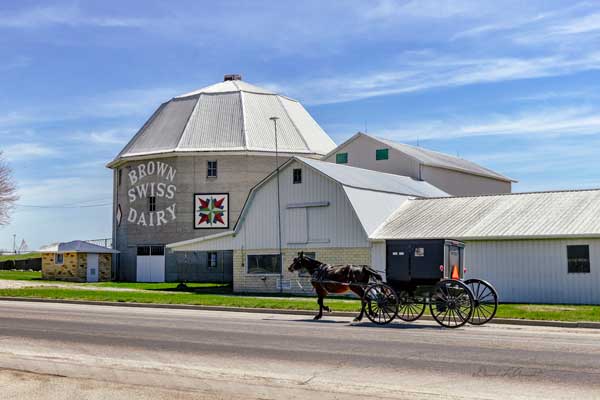Many Shipshewana & LaGrange County visitors are fascinated by the Amish culture in our area, and are often curious about the reasons behind the Amish lifestyle and traditions. Here are answers to 10 common Amish questions:
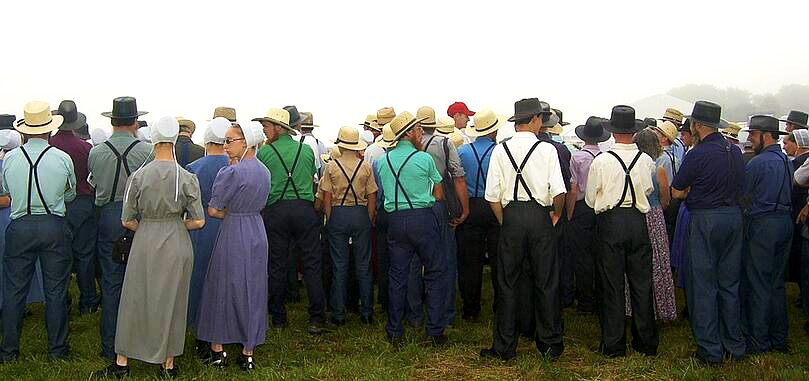
In this blog, Loren Beachy, a resident of Goshen, Indiana and member of the Old Order Amish Church, seeks to answer 10 frequently asked questions about the Amish in Shipshewana and Northeast Indiana.
This article was originally published in the Menno-hof Reunion Newsletter in May of 2015. The Menno-hof is a non-profit information center located in Shipshewana, Indiana, that teaches visitors about the faith and life of Amish and Mennonites.
Please understand, in my responding to all these questions, my aim is to educate, not condemn. The entire goal of our Amish lifestyle is to make it easier for us and our descendants to follow Jesus Christ. We believe this culture is the best one for us. We do not claim it is the only way to attain Heaven, Jesus Christ is the only way. – Loren Beachy
1. Do the Amish pay taxes?
There are only two things certain in life… Yes. We Amish pay taxes as much as the next person. The myth of us not paying taxes is a bit grievous since we believe in following the New Testament teachings on submitting to the government whenever it doesn’t violate Biblical principles. Jesus said, “Render unto Caesar that which is Caesar’s.” (Matthew 22:21) I imagine that also meant Uncle Sam.
With all that said, there are small groups of Amish who choose to be ultra-conservative. Supposedly, they live off the beaten path somewhere, shun Social Security numbers, deal only in cash and, as far as the government is concerned, may not even exist. I cannot speak for these groups since I have so little information. They are in the distinct minority.
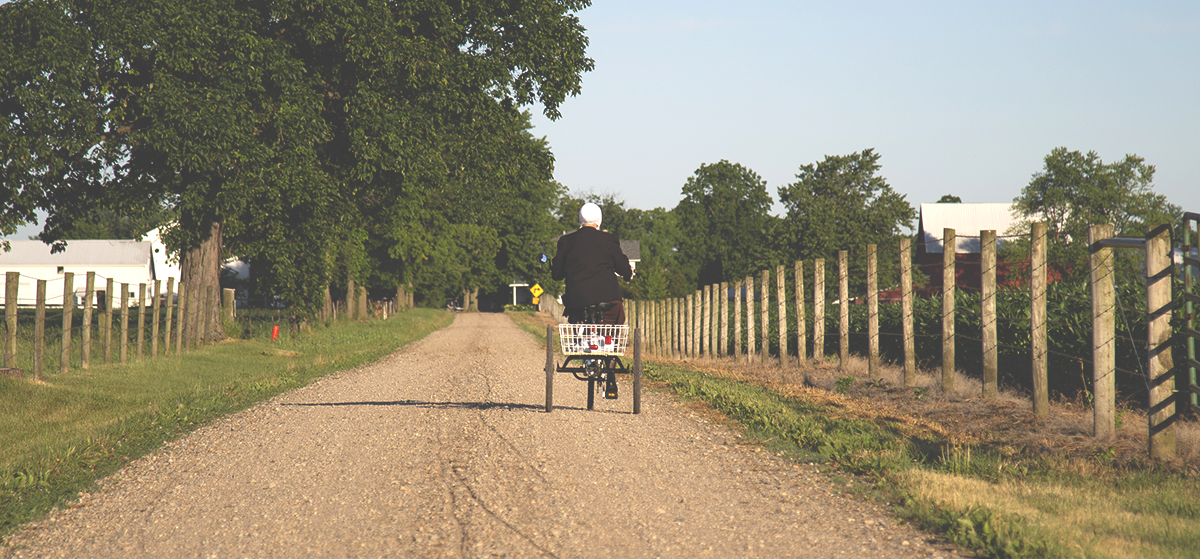
2. Do the Amish use banks and credit cards?
Yes. Throughout the country, as we’ll discuss later in common Amish questions, there is a great degree of variation in how conservative groups of Amish choose to be. Some of the more conservative may not use debit cards, but to the best of my knowledge, almost all of the Amish use banks. In the area where I live, debit cards are fairly prevalent.
3. Do the Amish vote?
Probably the most common of the common Amish questions! As a rule, no. We believe we can help our government more by praying for them than by casting one vote. And we do want to pray for our leaders (I Timothy 2:1-2). Separation of church and state is an important part of the church’s history and we desire to be citizens of an eternal kingdom much more than an earthly one. Thus, the practice of keeping participation in government at an arm’s length. With this said, there are groups of Amish that choose to vote in local elections, but none in the area where I live.
4. What determines whether the men do or do not wear beards?
In our community, a man will grow a beard after he is married. It saves money on razors that he now needs to support a wife.
All jokes aside, originally, an Amish young man would grow a beard as soon as he joined the church, regardless of marital status. This is part of our non-conformed culture, much like plain clothes. Through some drift perhaps, it is now common in many areas to wait until one is married to grow facial hair. In some communities, though, men do begin sooner.
5. What is the role of a bishop and how is he chosen?
I asked Grandpa Miller, a retired bishop, about this one. He responded, “A bishop shall be a shepherd to his flock and lead them in preaching the plan of salvation, in baptisms, weddings and funerals. They are ordained by lot, chosen by God, as in Acts 1:23-26.”
In my young life, I have lived in churches under three different bishops and have yet to experience a harsh one. People are people and styles and interpretations will vary, but I think it is safe to say there are many more George Washingtons than Fidel Castros. It should also be noted that although a bishop is ordained to lead the church, there are no decisions on church policy made without the unanimous vote of the members.
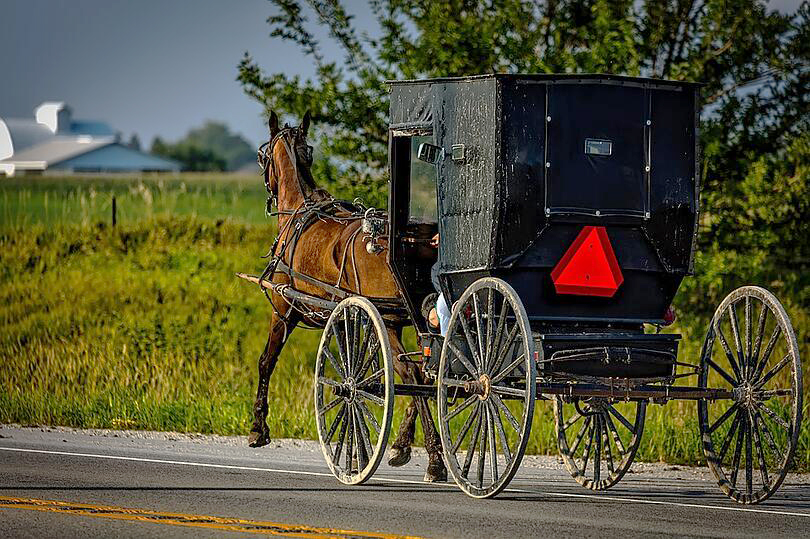
6. Why are there so many sects of the Amish and differences in which rules they will follow?
This is an excellent question and may best be answered with “because we’re human.” I think all Amish would agree that we need a line, the clearer the better, in order to keep us non-conformed to the world. Where exactly to draw the line though?
That is where many differences of opinion come into play.
The ideal situation might be that all we Amish would agree on all issues and we would have uniform standards across the world. Doesn’t happen. It probably never will on this side of the grave. In the meantime, by the grace of God, we’ll strive to understand, respect and love all people as Jesus taught.
7. Why can the Amish have phones for business or in an outbuilding, but not in their homes?
I politely object to the word “can” in that question. We choose not to have phones in our homes or in our pocket because we fear it would disrupt our family life and lead us away from values we hold dear.
We realize we need to make some concessions in order to function in the world and it has seemed to work well to have a phone slightly separated from the home.
The growing use of cell phones by some Amish is a concern to many and is an issue being sorted through at the present. Degrees of conservatism vary.
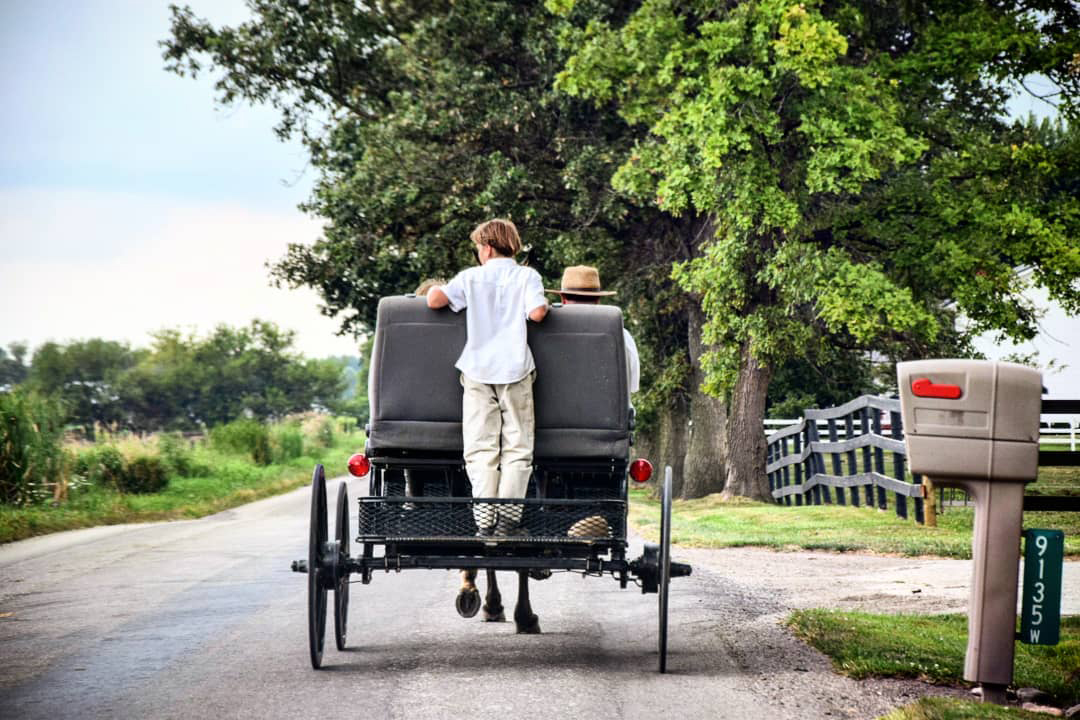
8. Why do Amish children drop out of school after the eighth grade?
We Amish aim to provide an education that enables a person to earn a living. We believe that an eighth grade education is sufficient to do this. So far, through all the years, this belief has proven true. It is felt that higher education tends to lead away from our simple non-conformed lifestyle. Therefore, we avoid it.
9. Why do the Amish not have their photos taken?
I asked Grandpa Miller for help here. “We have discouraged photos using one of the Ten Commandments, ‘Thou shalt not make unto thee any graven image, or any likeness of anything in heaven above or the earth beneath or in the water under the earth.’” (Exodus 20:4-5) Use of all photos is not strictly shunned in our community, but photos of people are not for display.
10. What is rumspringa?
The last of our common Amish questions is a great one! Interpreted literally it means “running around.” What it really means and how Hollywood and the media have at times portrayed it are two different things. Shocking, isn’t it? Chuckle.
Rumspringa is the period of time when a youth “runs around” with other youth to social functions, hymn singings, recreational sports, etc. In the process, he often meets a partner, courts her and gets married, abruptly ending the “running around.”
It is not intended to be a time of partying or other wild excesses. Most of the time, for about 85 percent of the youth, it isn’t.
Amish teenagers, though, are much like any teenagers. Sometimes they suddenly think they know much more than their parents and go against their parents’ wishes in things they choose to do or have. Some parents permit this; very few encourage it. It should be emphasized, though, that while these youth may get the headlines, they are distinctly in the minority.
We hope this blog has helped you learn more about Amish lifestyle and culture, and to understand them a little more!

